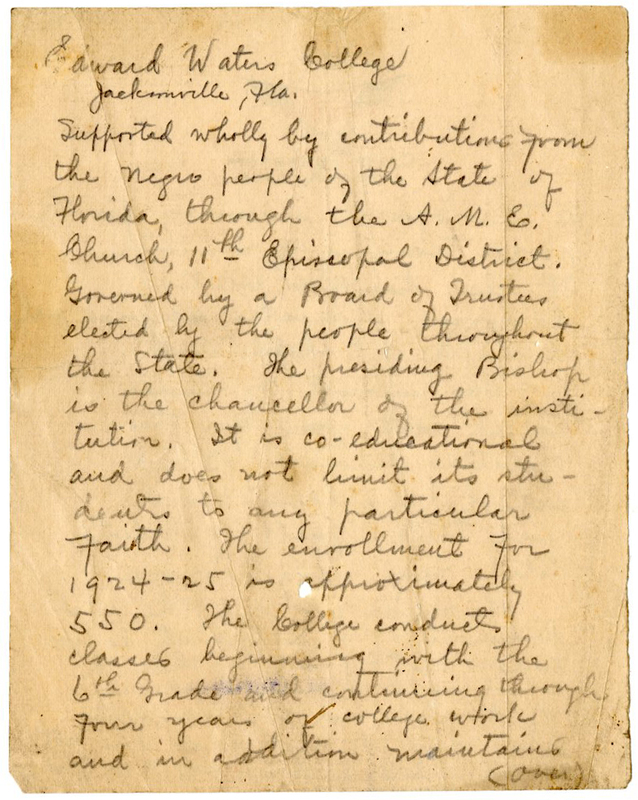Public Life: Education and Social Service
In 1865, Reverend Charles H. Pearce was sent to North Florida by AME Bishop Daniel Alexander Payne, a man described by Reverend Francis Grimké as “indefatigable in his efforts in the cause of education” (5). The following year, to educate newly freed slaves emancipated by the outcome of the United States Civil War, Reverend Pearce and Reverend William G. Steward began an education ministry and opened a school in Live Oak, Florida. Nearly twenty years later, the school moved to Jacksonville, Florida and, in 1888, was named Divinity High School. In 1892, the school was renamed Edward Waters College in honor of the third Bishop of the AMEC. Unfortunately, Edward Waters College was damaged in Jacksonville’s Great Fire of 1901, but was rebuilt over time. On April 27th, 1916, the corner stone for Centennial Hall was laid and bears an inscription which reads, in part: “Centennial Building Commemorating the Centennial of African Methodism.”
The author of the exhibited “Notes on Administrative Matters, Edward Waters College, 1924-1925” is unknown, but the college does have connections with Eartha M. M. White, the namesake of the collection from which the document originates. In 1951, Eartha’s 75th birthday celebration served as a fundraiser for the Clara White Mission, the humanitarian organization Eartha co-founded in 1904. The program for the celebration contains several citations awarded to Eartha, one of which is from Edward Waters College. It reads, in part: “In recognition of more than a half century of outstanding Social and Welfare Services; Civic Political and Religious activities, usefulness and eminent character which have earned for her the name of ‘Angel of Mercy’”. The Eartha M. M. White Historical Museum in Jacksonville, Florida, displays an honorary Doctor of Laws degree conferred upon Eartha in 1961 by Edward Waters College and Eartha served on at least one Edward Waters College committee during her life.
The Free African Society paved the way for the African Methodist Episcopal Church, an organization which carries on the benevolent mission of its predecessor. The AMEC, in turn, produced Edward Waters College, an educational institution that honored a commitment to social service in individuals like Eartha White.

